For this Service Series post, we are pleased to share some insightful reflections on public service from Tom Kilgannon, President of our military charity partner, Freedom Alliance, and current Commissioner on the National Commission on Military, National and Public Service. Below Tom provides his perspective on the essential role of public servants in the success and security of our nation. To contribute to the Commission’s important task to provide recommendations on how to build a stronger ethos of service in the United States, in 2018 the Foundation was pleased to organize a roundtable discussion with Commission staff where some of our Graduate Fellows offered their personal insights as aspiring and rising public servants themselves. As part of our mission here at the Foundation is to encourage public service and honor service to nation, we have been interested to review the Commission’s findings and are pleased to share this post which provides some highlights from their recently released report.
Twice in the last twenty years our country has faced dangerous and deadly attacks which have tested our mettle and caused the best of our citizenry to commit themselves to needs of the nation. In each case, I’ve had a unique look at how they respond and why they do it. Today, there are roughly 24 million Americans who give of themselves in military, national or public service and continue our rich and noble history of service to community and country.
On the morning of September 11, 2001, I boarded Northwest Airlines’ Flight 238 in Detroit, headed for Reagan National Airport, and ultimately diverted to Dulles International Airport. At the same time my flight departed, terrorists crashed the first of two planes into the World Trade Center. About 40 minutes later, all air traffic was halted, and millions of passengers were on the ground.
Their safe landing is attributed to thousands of air traffic controllers – dedicated public servants – who executed the time-critical mission of landing the planes. But they were just the tip of the service iceberg. On that day, Air National Guard fighter pilots patrolled the skies over the nation’s capital; Secret Service agents protected the President and Vice President; State Department personnel hardened our embassies around the world; intelligence officers identified the perpetrators; and thousands of first responders risked their lives to save others.
Critical jobs like these are performed by unsung heroes every day, yet we tend to notice their service only in times of crisis. Today, America is fighting a very different enemy in the COVID-19 virus, but public servants are once again on the front lines.
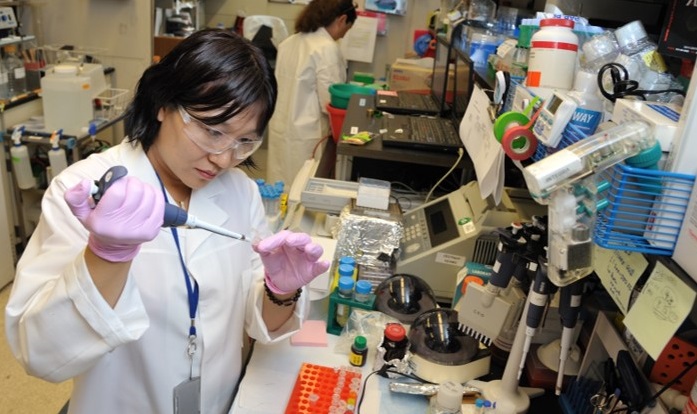
What they give our country is “a personal commitment of time, energy, and talent to a mission that contributes to the public good by protecting the Nation and its citizens, strengthening communities, or promoting the general social welfare.”
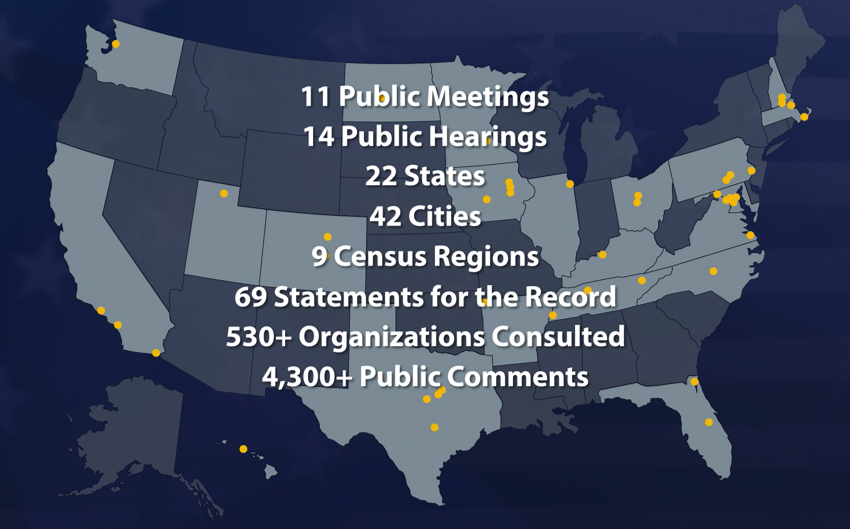
This definition comes from the National Commission on Military, National and Public Service which was established by the U.S. Congress in 2017. It was charged to “conduct a review of the military selective service process” and offer recommendations for creating a stronger ethos of service “to address national security and other public service needs of the Nation.” A bipartisan group of eleven Commissioners has spent three years listening to, and learning from, those who work on our country’s behalf and those who might do the same with some encouragement.
Appointed by then House Speaker Paul Ryan, I’m honored to be a part of this group. On March 25, 2020, we submitted our final recommendations to the President and Congress.
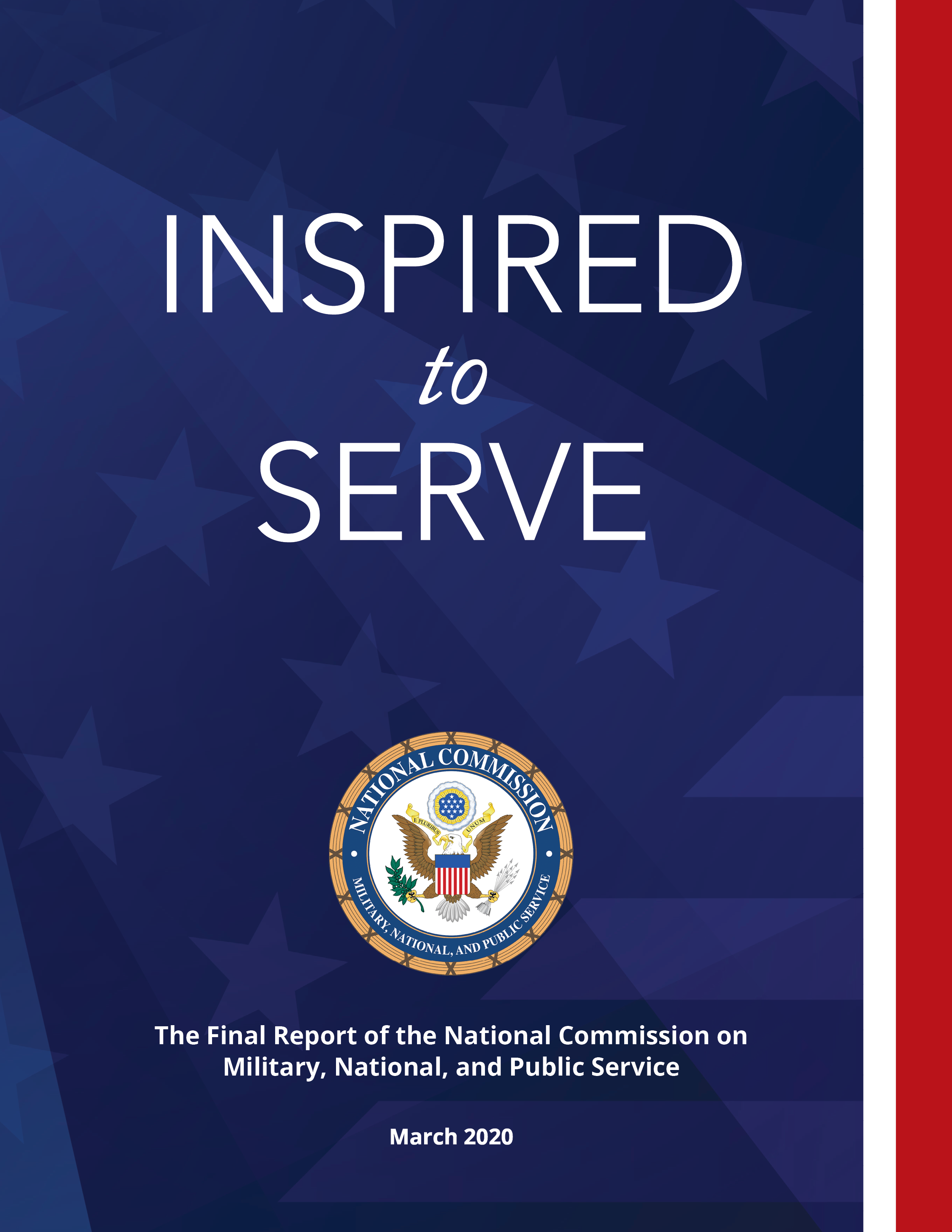 Our report, Inspired to Serve, could not come at a more important time. This COVID-19 crisis demonstrates the critical role of service in meeting America’s most pressing challenges. Public servants – in the military, government, non-profits, and faith communities – are working around the clock to kill this virus and protect our people. The report offers a bold vision to strengthen our national mobilization system and ensure our nation and her communities can marshal the human resources and the critical skills needed to respond effectively to pandemics, natural disasters, terrorist or cyber-attacks, and other unforeseen challenges.
Our report, Inspired to Serve, could not come at a more important time. This COVID-19 crisis demonstrates the critical role of service in meeting America’s most pressing challenges. Public servants – in the military, government, non-profits, and faith communities – are working around the clock to kill this virus and protect our people. The report offers a bold vision to strengthen our national mobilization system and ensure our nation and her communities can marshal the human resources and the critical skills needed to respond effectively to pandemics, natural disasters, terrorist or cyber-attacks, and other unforeseen challenges.
These are the more visible and dramatic examples of the needs to which public servants attend. But before the outbreak of COVID-19, they were testing our water, caring for our national parks, protecting our borders, teaching our children, policing our streets, practicing diplomacy, and offering companionship to our elderly. These duties may seem routine, but without the quiet professionals who perform these kinds of service, they’d be anything but.
To all who are fighting the COVID-19 virus and giving so generously of their time and talent, we are in your debt – thank you. The example you set is admirable. If ever our nation had an all-hands-on-deck moment, this is it. Our Commission envisioned scenarios like this in which reinforcements would be needed in short order. In a nation of 329 million Americans, there is a lot more talent that can be offered to this crisis. In our report, we outline how to find and inspire more Americans to causes – like the one we face today – that offer personal fulfillment and satisfy a national need.
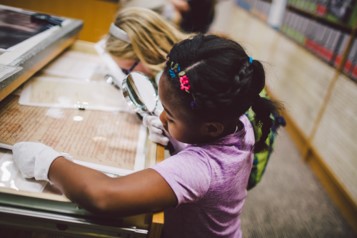
The lessons of 9-11 and COVID-19 are to ensure that America is more prepared and resilient for any future emergency. That begins with prioritizing civics education so we can produce more informed and engaged citizens. While STEM programs account for more than $3 billion in the federal budget, civics education warrants an estimated $5 million. Only eight states require students to pass a year-long civics or U.S. government course as a condition of graduation. As a result, 37% of adults are unable to identify any of the rights they are guaranteed by the Constitution’s First Amendment. There has never been a more important time for Americans to understand the Constitution and Bill of Rights and to appreciate the delicate balance between civil liberties and the power of government in a national emergency.
Further, a quality civics education helps to increase voter participation, lower school dropout rates, and can improve the likelihood of volunteerism and community service. Americans are craving a return of civics to our classrooms. It was a consistent refrain in our meetings across the country so that we can produce citizens who are better prepared and more likely to contribute to the health and wellbeing of our country.
From the infantry to infectious disease specialists, America’s military is the world’s greatest and must remain so. However, current trends in propensity and eligibility present a challenge. Roughly 41% of our youth have never considered military service as an option and an alarming 71% aged 17-24 are ineligible.
To ensure our All-Volunteer Force remains strong, sustainable, and able to recruit and retain qualified individuals, the Commission recommends solutions to increase the public’s understanding of the military and the array of career opportunities it offers. When the current public health crisis is behind us, we should increase tours of military bases and facilities and allow military recruiters on school campuses.
In 2016, nearly 40% of all new active duty enlistments came from just five states – Texas, Florida, California, Georgia, and New York. We need to strengthen military recruiting and marketing across the country. When a young person has exposure to the military, it increases their likelihood of enlistment. Outreach to community-based cadet and youth programs is vital to ensure that more young Americans, in consultation with their parents, can make important decisions about their future.
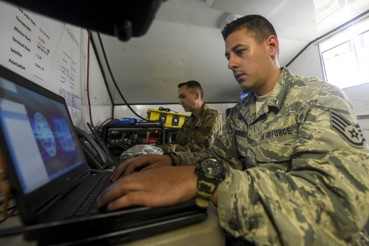
Public servants are vital to the health and security of the nation. Few understand this better than Secretary Donald Rumsfeld who has provided leadership to our nation as a Naval Aviator, member of the House of Representatives, America’s ambassador to NATO, White House Chief of Staff, and twice as Secretary of Defense, among many other important positions.
Today, the Rumsfeld Foundation supports graduate-level scholars who wish to enter the field of public service. Efforts like this are crucial to staffing our government agencies with the best and brightest. In the next five years, more than 1/3 of the federal workforce will be eligible for retirement. Institutional knowledge and valuable experience will leave with them if we don’t fix our broken federal hiring system so we can recruit talented successors.
These are just a few of the solutions the Commission offers, but there are many more. In anticipating worst-case scenarios like this COVID-19 crisis, the Commission also recommends:
- Creating a national roster of Americans who would volunteer to join in military, national, or public service opportunities in an emergency and who can be mobilized in a flexible and responsive manner;
- Establishing a critical skills Individual Ready Reserve of non-prior service personnel who would go on active duty when mobilized in response to an emergency;
- Formalizing a Presidential call for volunteers;
- Establishing a Civilian Cybersecurity Reserve to allow for a surge of the government’s cyber workforce in a time of critical need.
Since 9-11, I’ve had the great honor to work on behalf of America’s combat veterans and military families as the President of Freedom Alliance. With the help of the Rumsfeld Foundation, Freedom Alliance provides millions of dollars in college scholarships to the children of fallen or injured military heroes, helps combat veterans rehabilitate, and assists families struggling to overcome the wounds of war. Through these efforts I’ve come to admire and respect our military more than words can convey.
I’m proud to have played a part of a dynamic cultural change that ensures today’s troops enjoy a level of support their Vietnam-era predecessors were denied a generation before.
Through my work on this Commission, I’ve come to better appreciate those who answer a call to military, national or public service. I hope our recommendations will produce another societal change in the years ahead that leaves every American inspired and eager to serve and unites us all in a shared, common purpose.
.
.
Tom Kilgannon is a Commissioner on the National Commission on Military, National and Public Service and the President of Freedom Alliance, a non-profit organization providing support to military families and children since 1990. Read Tom's full bio here.
The Rumsfeld Foundation is a proud supporter of the Freedom Alliance Scholarship Fund, providing academic scholarships for the children of fallen or injured military heroes.
The National Commission on Military, National, and Public Service was created by Congress to consider and develop recommendations concerning the need for a military draft, and means by which to foster a greater attitude and ethos of service among American youth. It's mission is to listen to the public, learn from those who serve, and recommend to the President, Congress, and the American people ideas to foster a greater ethos of military, national, and public service to strengthen American democracy. Read the Commision's full final report here.
.
*All photos throughout this blog are found in the "Inspired to Serve - The Final Report of the National Commission on Military, National, and Public Service - March 2020."


